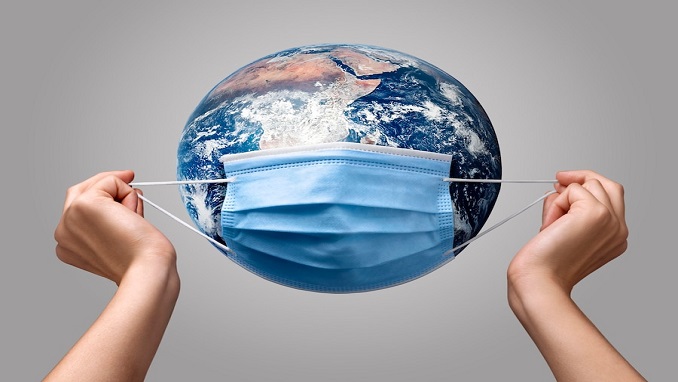The World Health Organization (WHO) announced on Friday the formal establishment of a new billion-dollar pandemic preparedness fund. The financial intermediary fund (FIF) will invest in strengthening the defenses against pandemics and epidemics, says the press release published by the WHO and the World Bank.
Officially established at the inaugural meeting of the FIF Governing Board in Washington, the new financial intermediary fund (FIF) for pandemic prevention, preparedness, and response (PPR) will “provide complementary support, improve coordination among partners, incentivize increased country investments, serve as a platform for advocacy, and help focus and sustain much-needed, high-level attention on strengthening health systems,” the release adds.
“The FIF’s Governing Board includes equal representation of sovereign donors and potential implementing country governments (co-investors), as well as representatives from foundations and civil society organizations (CSOs),” the release reads.
Pandemic preparedness fund to redress inequities
The World Bank’s Board of Directors approved the fund’s establishment on June 30, citing the urgent need for coordinated action “to build stronger health systems and mobilize additional resources for pandemic prevention, preparedness, and response” following the devastating human, economic, and social cost of COVID-19 pandemic.
As WHO Director-General Dr. Tedros Adhanom Ghebreyesus pointed out at the time, “COVID-19 has exposed major gaps in preparedness capacities,” as well as huge inequities that must be redressed.
Dr. Ghebreyesus noted how crucial it is “to put in place the measures to fill critical gaps in.” FIF is one of those key measures, he said, adding that WHO will advise the “FIF Board on where to make the most effective investments to protect the health, especially in low- and middle-income countries.”


The new FIF “will provide a dedicated stream of additional, long-term financing to strengthen PPR capabilities in low- and middle-income countries and address critical gaps through investments and technical support at the national, regional, and global levels.”
The fund seeks to close “the estimated $10.5 billion gap in annual financing” for global pandemic preparedness and response in lower-income countries which, according to WHO’s estimates, is “the minimum amount of additional financing required to support equitable global access to vaccines, testing and therapies, global surveillance, research and development, manufacturing and health system strengthening.”
First calls for proposals in November
“COVID-19 has highlighted the pressing need for action to build stronger health systems,” said World Bank Group President David Malpass.
The fund, which will open the first calls for proposals for investments in November 2022, will be hosted by the World Bank – which serves as the fund’s trustee – with technical support from Geneva-based WHO.
The World Bank will also “host the Secretariat, which will include technical staff seconded from the WHO.”
The fund’s governing board will appoint a technical advisory panel chaired by WHO that will “make recommendations to the Governing Board on the technical merits of proposals for funding,” ensuring linkages to the legally binding International Health Regulations, as part of the broader global PPR architecture.”


The International Health Regulations (IHR) are legally binding rules among 196 nations for responding to global health emergencies like the coronavirus pandemic.
Developed with support from some of the major economies of G20, the fund has so far lined up more than US$1.4 billion in financial commitments including contributions from the United States, Australia, Canada, China, the European Commission, among other countries, as well as from the Bill & Melinda Gates Foundation, the Rockefeller Foundation, and Wellcome Trust.
According to WHO, the financing “could help strengthen and sustain PPR capacity” in laboratories, emergency communication, zoonotic disease surveillance, pandemic coordination and management, critical health workforce capacities, and community engagement.
Read more about the importance of pandemic preparedness:




